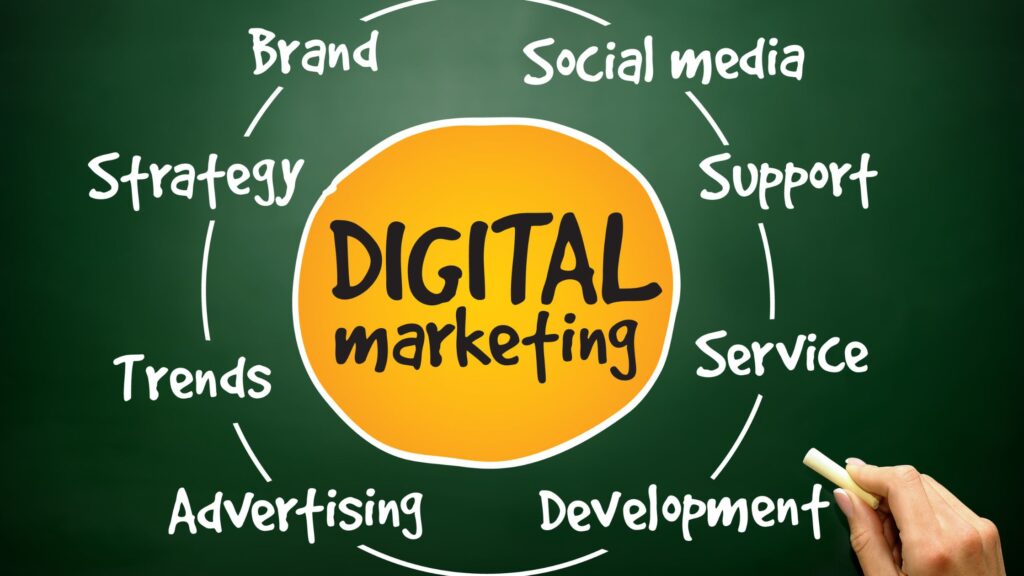In today’s fast-paced business landscape, digital marketing has emerged as the linchpin for success. As we navigate the intricacies of a dynamic marketplace, the role of digital marketing in shaping the destiny of businesses cannot be overstated. In this comprehensive guide, we delve into the manifold ways in which digital marketing propels business services to unprecedented heights.
Unlocking Success: The Significance of Digital
Marketing in Business Services
I. Introduction to Digital Marketing
A. Definition and Scope
Digital marketing encompasses a broad spectrum of online activities designed to connect businesses with their target audience. From search engine optimization (SEO) to social media marketing, email campaigns, and beyond, its reach is expansive, offering an array of tools to amplify brand visibility.
B. Evolution Over Time
The digital marketing landscape has evolved significantly, mirroring the rapid advancements in technology. What once started with simple banner ads has now transformed into a sophisticated ecosystem, embracing data analytics, artificial intelligence, and personalized targeting.
II. The Pillars of Digital Marketing
A. Search Engine Optimization (SEO)
1. Keywords and Content Optimization
At the heart of effective SEO lies the strategic use of keywords. Through meticulous research and implementation, businesses can optimize their website content to align seamlessly with user queries, ensuring a prominent presence in search engine results.
2. Backlink Building
Quality backlinks act as endorsements, signaling to search engines the credibility and relevance of a website. A robust backlink profile enhances a site’s authority, contributing to higher search rankings.
B. Social Media Marketing
1. Building a Brand Persona
Social media platforms serve as dynamic channels for brand expression. Crafting a compelling brand persona across platforms not only fosters engagement but also contributes to enhanced brand recall.
2. Targeted Advertising
Social media advertising enables businesses to precisely target their audience based on demographics, interests, and behaviors. This precision ensures that marketing efforts resonate with the right audience segments.
C. Email Marketing
1. Personalized Communication
Email marketing, when executed strategically, allows businesses to establish direct, personalized communication with their audience. Tailored content and exclusive offers contribute to customer retention and loyalty.
2. Automation for Efficiency
Automation tools streamline email marketing processes, allowing businesses to nurture leads, send targeted campaigns, and measure engagement seamlessly. This efficiency translates into tangible results and a higher return on investment.
III. Digital Marketing’s Impact on Business
Services

A. Increased Visibility and Reach
1. Global Exposure
Digital marketing dismantles geographical barriers, providing businesses with a global platform to showcase their services. Enhanced visibility on search engines and social media platforms facilitates connections with a diverse audience.
2. Targeted Local Marketing
For businesses with a local focus, digital marketing allows precise targeting of local audiences. Local SEO strategies, coupled with geotargeted advertising, ensure that businesses are prominently featured in local search results.
B. Cost-Effective Marketing Strategies
1. Return on Investment (ROI)
Digital marketing, with its data-driven approach, allows businesses to track and measure the effectiveness of their campaigns. This transparency enables informed decision-making, ensuring that marketing budgets are optimized for maximum ROI.
2. Budget-Friendly Alternatives
Compared to traditional marketing channels, digital marketing offers budget-friendly alternatives. From social media campaigns to email newsletters, businesses can achieve significant results without breaking the bank.
C. Enhanced Customer Engagement and Interaction
1. Real-time Communication
Social media platforms and instant messaging facilitate real-time communication between businesses and customers. This instant connectivity fosters a sense of community and responsiveness, strengthening customer relationships.
2. Customer Feedback Loop
Digital marketing platforms provide a valuable feedback loop. Businesses can glean insights from customer comments, reviews, and interactions, allowing them to adapt and refine their services based on real-time feedback.
IV. The Road Ahead: Navigating the Digital
Landscape
A. Staying Ahead of Trends
1. Embracing Technological Advancements
Remaining at the forefront of digital marketing necessitates a commitment to adopting emerging technologies. From voice search optimization to immersive experiences, businesses must adapt to stay relevant.
2. Data-Driven Decision Making
In an era inundated with data, leveraging analytics for decision-making is paramount. Businesses must harness the power of data analytics to refine strategies, identify trends, and anticipate shifts in consumer behavior.
Conclusion
In conclusion, the importance of digital marketing in business services cannot be overstated. It serves as the catalyst for increased visibility, cost-effective marketing, and enhanced customer engagement. As businesses navigate the evolving digital landscape, a strategic and holistic approach to digital marketing is key to unlocking success.

